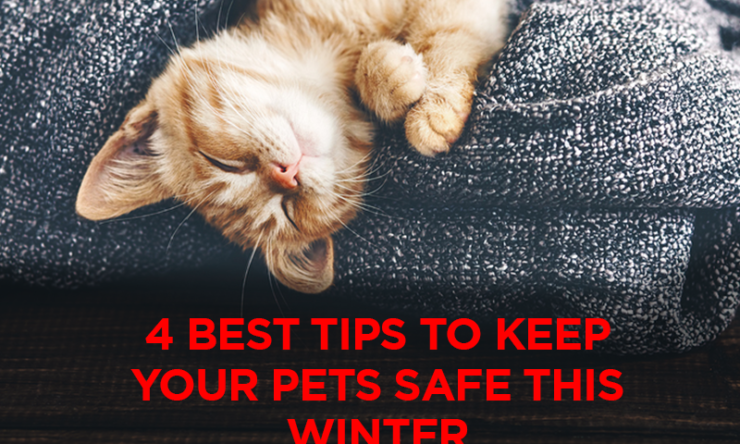When we think of winter we probably think of getting into a cold vehicle and having to wake up an hour early just to get to work in chilly winter conditions. But what about our pets? Should you limit them to being outside in the cold? Is too much cold, well, too much? Whether your pet stays inside or loves playing outside, you have to look into the risk involved with your pets and frigid temperatures.
Keeping Your Pet Safe During the Winter Season
1. Keep Them Warm
Adult dog and cat body temperature range from about 100 to 102.5 degrees F. Puppies and kittens, though, have trouble maintaining body temperature. Shorthaired pets have less protection, but even wooly cats and dogs are at risk. Thinly furred areas or body parts exposed to the wind or that come in contact with the icy ground have little protection from the cold.
2. Prevent Dry Skin
Cold air dries skin out. So does the heat from indoor heaters. Dogs and cats often develop dry skin, dull coats, and static-filled fur during the winter as a result. What I’ve found to work are fatty acid supplements. They nourish the skin and fur, and counteract the drying effects of the blistering winter weather. You can find fatty acid supplements from pet supply stores or from your local veterinarian.
3. Dry Them Off
Your pets should be kept inside when temperatures drop below about 40 degrees or the weather gets really bad. Be sure to dry off your dog or cat when they come inside every time. Damp feet and fur make pets feel even colder. Moisture doesn’t evaporate well in the winter either, and can cause skin to dry and crack which can be extremely painful. Be sure to check between your pet’s paw-pads after he’s been out in the cold to ensure ice hasn’t formed into chunks in the fur. A quick dip in warm water or a foot bath with a warm, wet towel can do the trick.
4. Check the Heat
Cats love the heat. They may get so close to the flame they singe their fur and risk catching a fluffy tail on fire. Place a safety screen in front of your fireplace to help keep the cats a safe distance away, to prevent burns. Also, be sure to check furnaces for your own safety as well as the pets.
Let’s keep our pets safe this winter and prevent them from getting frostbite, hypothermia or getting injured. Contact your local vet for any questions or concerns you may have.
Source: PetSafe
Copyright: Local Value



